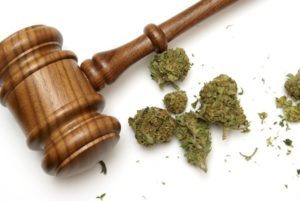 In its imposition of defendant’s Drug Court sentence, the court did not apply the presumption of incarceration under N.J.S.A. 2C:44-1(d), nor could it. The court never made findings permitting defendant to overcome the presumption of incarceration, and the court was not required to do so. To the contrary, defendant was sentenced pursuant to N.J.S.A. 2C:35-14, which provides an exception to the presumption of incarceration.
In its imposition of defendant’s Drug Court sentence, the court did not apply the presumption of incarceration under N.J.S.A. 2C:44-1(d), nor could it. The court never made findings permitting defendant to overcome the presumption of incarceration, and the court was not required to do so. To the contrary, defendant was sentenced pursuant to N.J.S.A. 2C:35-14, which provides an exception to the presumption of incarceration.
Unlike N.J.S.A. 2C:44-1(f)(2), which permits the State to appeal a court’s determination overcoming the presumption of incarceration under N.J.S.A. 2C:44-1(d), N.J.S.A. 2C:35-14 does not include any authorization for the State to appeal a defendant’s Drug Court sentence. In our view, the absence of such statutory authorization requires the conclusion that the State lacks the requisite authority to appeal.
While this language is helpful to drug court applicants, it appears to be an unintentional over-statement. The State would almost certainly have the authority to appeal, for example, a defendant charged with murder being entered into Drug Court in violation of the plain language of factor (7).
The State argues N.J.S.A. 2C:44-1(f)(2), authorizes it to appeal any non-custodial or probationary sentence for a first or second-degree offender. Acceptance of the State’s reasoning would permit the State to appeal every special probation Drug Court sentence because a special probation Drug Court sentence under N.J.S.A. 2C:35-14 may be imposed only on defendants who are “ineligible for probation due to convictions for crimes subject to the presumption of incarceration.” The legislative history of N.J.S.A. 2C:35-14, however, undermines the State’s position.
A 1999 amendment to N.J.S.A. 2C:35-14 expressly authorized the State to appeal the imposition of a special probation Drug Court sentence under certain circumstances. The amendment provided that a defendant convicted of “any crime for which there existed a presumption of imprisonment” was ineligible for special probation if the State objected to the sentence. The statute, however, provided that a court could sentence a person who committed an offense for which there was a presumption of imprisonment to special probation, if the court found the State’s objection constituted a “gross and patent abuse of prosecutorial discretion.” Where the court sentenced a defendant to special probation Drug Court over the State’s objection, the amendment expressly authorized the State’s right to appeal.
